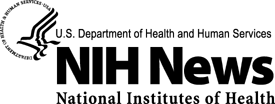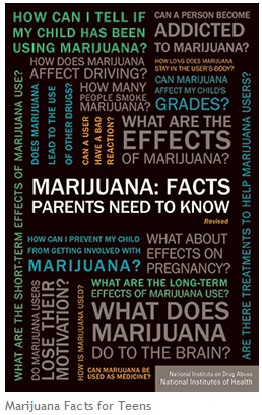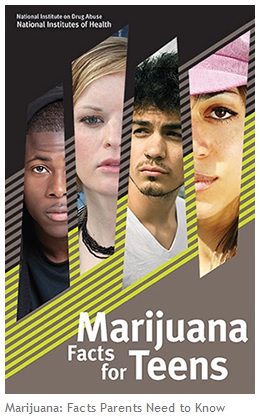
NIDA offers tools for talking to teens about marijuana
Guides target both teens and parents with up-to-date science-based facts on marijuana
Marijuana Facts for Teens
Two updated booklets about marijuana for teens and their parents will help families sort out marijuana myths from science-ba sed facts. The revamped tools come from the National Institute on Drug Abuse (NIDA), part of the National Institutes of Health. These booklets were released during the Substance Abuse and Mental Health Services Administration’s National Prevention Week 2014 on the day dedicated to the Prevention of Prescription Drug Abuse and Marijuana Use.
sed facts. The revamped tools come from the National Institute on Drug Abuse (NIDA), part of the National Institutes of Health. These booklets were released during the Substance Abuse and Mental Health Services Administration’s National Prevention Week 2014 on the day dedicated to the Prevention of Prescription Drug Abuse and Marijuana Use.
Marijuana Facts for Teens discusses the often confusing themes of health consequences of marijuana use in this age group, its effect on the developing brain, its addiction risk, and what we know about its potential as a medicine. Marijuana: Facts Parents Need to Know has updated tips for parents on how to tell if their child is using marijuana and how to talk about the issue with their teen in a climate of heated public debates over legalization. Both revised publications are now available online. Marijuana Facts for Teens is also available in print, and Marijuana: Facts Parents Need to Know will be available in print soon.
Along with updated data and research-based information, new sections in both guides cover the dangers of K2/Spice (often referred to as synthetic marijuana) and new research that shows smoking marijuana regularly as a teen can lower IQ. Both guides also include new information on the state of the science related to potential therapeutic uses for chemical compounds found in the marijuana plant.
NIDA’s 2013 Monitoring the Future survey results indicate that by the time they graduate high school, 45.5 percent of U.S. teens will have tried marijuana at least once. Also, 36.4 percent of 12th graders, 29.8 percent of 10th graders, and 12.7 percent of eighth graders say they smoked it during the past year. More than 6 percent of seniors say they smoke it daily, putting them at higher risk for addiction.
Marijuana: Facts Parents Need to Know
“Our goal for teens is to give them the straight, science-based facts so that they can make smart  choices and be their best selves—without drugs,” said NIDA director Dr. Nora D. Volkow. “We hope that they will continue the conversation and share this information with their peers, parents, teachers, and others.”
choices and be their best selves—without drugs,” said NIDA director Dr. Nora D. Volkow. “We hope that they will continue the conversation and share this information with their peers, parents, teachers, and others.”
For more information for teens about drug abuse, please visit the NIDA for Teens website.
The National Institute on Drug Abuse is a component of the National Institutes of Health, U.S. Department of Health and Human Services. NIDA supports most of the world’s research on the health aspects of drug abuse and addiction. The Institute carries out a large variety of programs to inform policy and improve practice. Fact sheets on the health effects of drugs of abuse and information on NIDA research and other activities can be found on the NIDA home page at http://www.drugabuse.gov, which is now compatible with your smartphone, iPad or tablet. To order publications in English or Spanish, call NIDA’s DrugPubs research dissemination center at 1-877-NIDA-NIH or 240-645-0228 (TDD) or fax or email requests to 240-645-0227 or drugpubs@nida.nih.gov. Online ordering is available at http://drugpubs.drugabuse.gov. NIDA’s media guide can be found at http://drugabuse.gov/mediaguide, and its new easy-to-read website can be found at http://www.easyread.drugabuse.gov.
About the National Institutes of Health (NIH): NIH, the nation's medical research agency, includes 27 Institutes and Centers and is a component of the U.S. Department of Health and Human Services. NIH is the primary federal agency conducting and supporting basic, clinical, and translational medical research, and is investigating the causes, treatments, and cures for both common and rare diseases. For more information about NIH and its programs, visit www.nih.gov.
